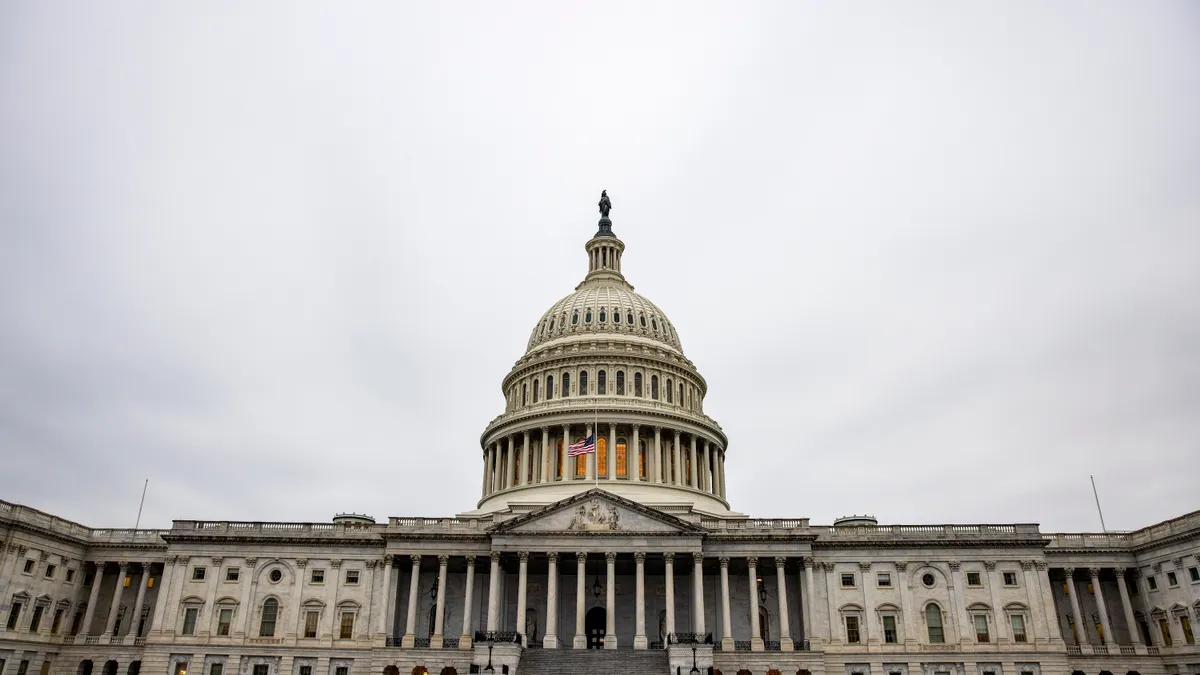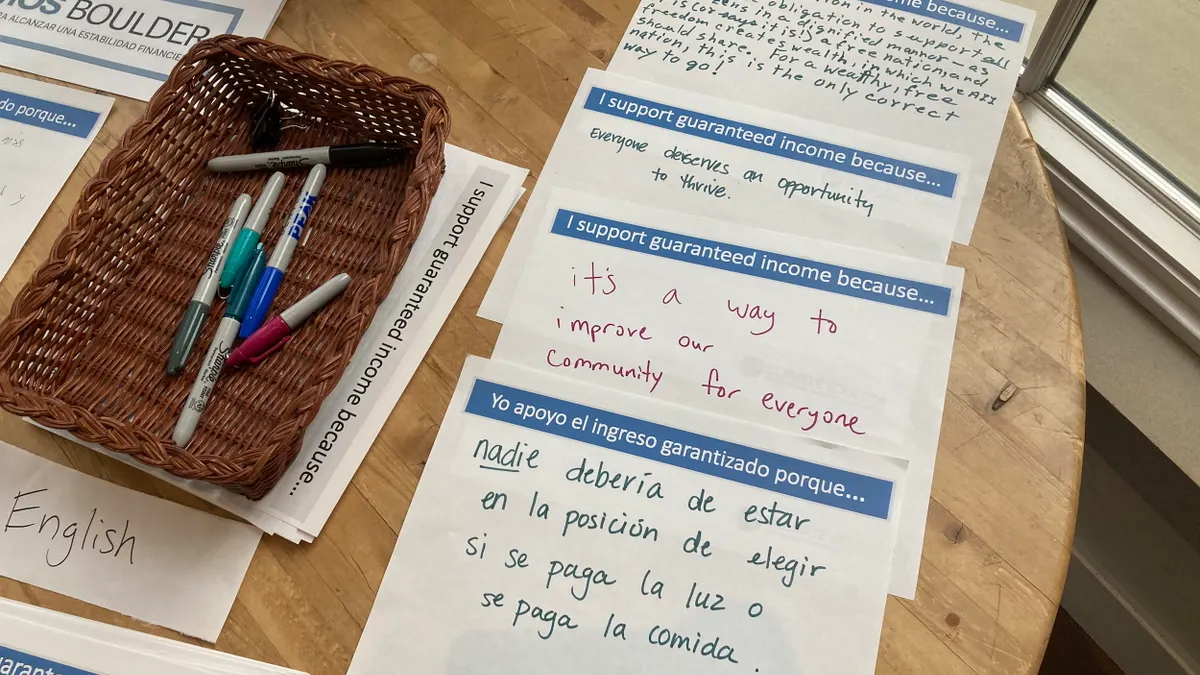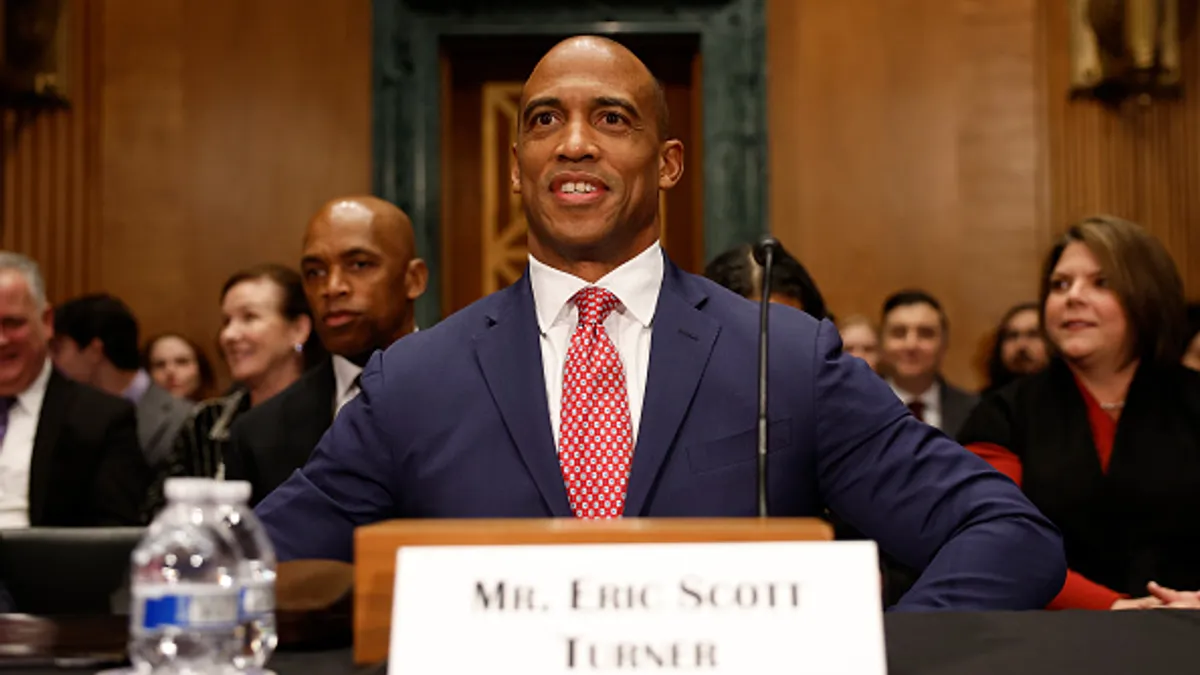State and local governments struggled to distribute $4 billion in federal COVID-19 relief under the CARES Act to families experiencing homelessness due to staffing shortages and difficulties coordinating various funding sources, a report from the Office of the Inspector General for the U.S. Department of Housing and Urban Development found.
The Coronavirus Aid, Relief and Economic Security Act, or CARES Act, was the first major federal pot of pandemic relief, which Congress passed in March 2020. The legislation provided $4 billion through the Emergency Solutions Grants Program to help individuals experiencing homelessness prevent, prepare and respond to the coronavirus and provided additional support for homeless assistance and prevention activities.
Of the 313 government agencies that received funding and responded to a HUD survey — including states, counties and local governments — 39% indicated they needed more time beyond the Sept. 30, 2022, deadline to distribute the majority of their funds. Nearly a quarter of the respondents said they would be able to distribute all of the funds they received by the deadline, and another 29% stated they will have used a majority of the funds by that time. HUD eventually pushed back the deadline by a year, the report stated.
In total, 47% of the surveyed governments that received grants said it was difficult to implement the Emergency Solutions Grants Program funding they received under the CARES Act compared with when they have received money under the program normally. By April 1, 2022 — two years after the first tranche of money for the program was awarded — governments had drawn only 42% of the $3.96 billion awarded.
The OIG office stated in an email that some of the top challenges governments experienced when administering the grant funds were insufficient staffing capacity and difficulties coordinating with other, non-HUD funding sources. A majority of governments that contracted with outside groups (such as public housing agencies, local redevelopment authorities and private nonprofit organizations) to distribute the funds stated that the pandemic impacted their ability to effectively monitor those groups.
The report is consistent with what the National League of Cities has seen and heard from local governments, said Mike Wallace, NLC’s legislative director for housing, community and economic development.
“I don’t think it should be too surprising that program implementers at the beginning of the COVID crisis would have a lot of burdens that they were trying to overcome while also getting this influx of new funds for their programs to help residents who were going into stress,” Wallace said.
Regardless, the money was “extremely helpful,” said Steve Berg, vice president for programs and policy at the National Alliance to End Homelessness. Cities that had the capacity to do so used the money to get people off the streets quickly and find them shelter where they would be less likely to contract the coronavirus. Berg added that in most cases, there haven’t been large increases in unsheltered homelessness due to the pandemic — something he and many others predicted could happen at the onset of the pandemic, had the federal government not intervened with funding.
Even if the funds “weren’t always used in the most efficient way, they were used and had good impacts and kept increases in homelessness under control,” said Berg.
Building capacity to manage federal funds
Local government officials and people responsible for providing homelessness assistance during the pandemic were challenged by the large influx of funds, said Berg.
“People learned from the experience of the CARES Act that it takes staff and expertise and funding to implement new programs like this, [those] that are much larger than what the people on the ground are used to implementing,” he said.
Later coronavirus relief legislation focused more on providing funding that allows cities to hire people who could design systems needed to implement the programs, Berg said.
With federal funding from the CARES Act, the American Rescue Plan Act and the bipartisan infrastructure law flowing to local governments, cities are increasing their capacity and bringing on new staffers with greater expertise to continue intervention efforts they established during the pandemic, said Wallace.
The OIG report also concluded that the challenges local governments faced in terms of capacity, handling multiple funding sources and monitoring outside groups they contracted with could increase the risk of funds being misused.
Wallace disagreed with that notion, saying the delays indicate city staffers took their time “to get it right the first time.”
The delay also doesn’t suggest cities weren’t trying to address homelessness during the pandemic, Wallace said. Whereas the CARES Act funding was designed to provide immediate assistance to people experiencing homelessness, the pandemic was a long-term issue, he said. As a result, ARPA was created to be more flexible than the CARES Act, with less regulatory oversight and fewer “obstacles,” said Wallace.
Some cities are using ARPA money to increase the availability of affordable housing and create additional homeless shelters and long-term housing spaces. Wallace believes that as those long-term strategies begin to fall into place, and staffing and expertise improve, cities will start to ramp up their distribution of CARES Act funds to provide additional assistance to unhoused individuals.
“It’s not easy to build capacity. It is a painstaking process that involves a learning curve, that involves finding new revenues to support additional tasks, support additional programs, but it is the right thing to do,” said Wallace. “It’s OK, for that first round of emergency spending for homeless residents, that cities and towns and staff felt like they had a big load to carry, because they did.”
The various rounds of federal funds over the past several years have contributed to “long-term increases in capacity” at the state and local levels, he said. “It’s really going to benefit residents far into the future, even after these particular dollars run out.”





















